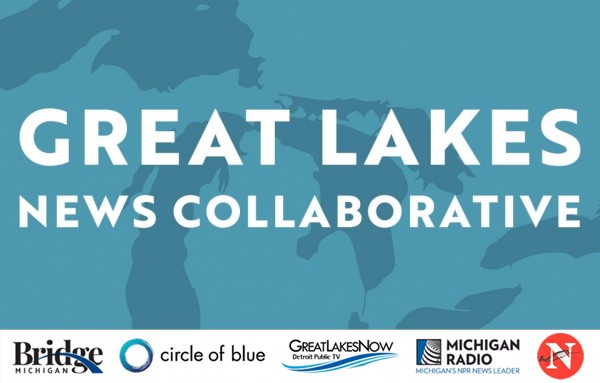Fresh, November 12, 2024: Proposed Upper Peninsula Copper Mine Draws Public Concern for Lake Superior Watershed
November 12, 2024
Fresh is a biweekly newsletter from Circle of Blue that unpacks the biggest international, state, and local policy news stories facing the Great Lakes region today. Sign up for Fresh: A Great Lakes Policy Briefing, straight to your inbox, every other Tuesday.
— Christian Thorsberg, Interim Fresh Editor
This Week’s Watersheds
- In Gogebic County, Michigan, a planned copper mine is once again placing environmental conservation and renewable energy at odds.
- Officials and environmentalists in Fremont, Michigan, are debating the future of a biogas digester, whose energy production may come at a cost to groundwater health.
- The Port of Cleveland, Ohio, will receive $94 million from the EPA to decarbonize its operations.
- Minnesota voters overwhelmingly backed an amendment to continue to use a large chunk of state lottery proceeds for environmental research and protection.
Through Wisconsin’s Safe Drinking Water Loan Program, 86 communities will receive more than $273 million to address PFAS pollution and replace lead service lines.
“Across Wisconsin, countless folks and families worry about harmful contaminants like PFAS and lead every time they turn on their tap—and that is a reality we have been working hard to change.” — Gov. Tony Evers, in a statement.
While visiting Milwaukee in early October, President Joe Biden announced an EPA ruling that will require communities to replace all lead service lines by 2037. With 167,000 lead lines still remaining in Wisconsin, the state will need to significantly exceed its current pace of removals and replacements in order to meet that deadline.
The newly announced $273 million, secured through the federal Bipartisan Infrastructure Law and allocated to 86 Wisconsin municipalities via the state’s Safe Drinking Water Loan Program, will go a long way toward helping the state meet this federal goal. Each community will receive base funding “for lead service line principal forgiveness.” Most remaining funds will be awarded with a low interest rate of 0.25 percent.
Among the state’s largest awardees are Milwaukee (more than $30 million), Watertown (more than $14 million), Kenosha (more than $7 million), and Manitowoc (more than $5 million). In total, the Bipartisan Infrastructure Law will provide the state more than $900 million in additional funding for water infrastructure between fiscal years 2022 and 2026, Wisconsin Public Radio reports.
Fresh from the Great Lakes News Collaborative
- Amid Upper Peninsula mining rush, tribe is still living with past pollution — Bridge Michigan
- Challenge to state PFAS rules on MI Supreme Court’s November docket — Michigan Public
- Great Lakes Moment: Sacred Grounds — Great Lakes Now
- What an effort to preserve Cree homelands in northern Manitoba means to the people behind it — The Narwhal
Bridge Michigan, Circle of Blue, Great Lakes Now at Detroit Public Television, Michigan Public and The Narwhal work together to report on the most pressing threats to the Great Lakes region’s water. This independent journalism is supported by the Charles Stewart Mott Foundation. Find all the work here.
Copperwood Mine’s Air Quality Permit Met with Public Skepticism
In Gogebic County, Michigan — where the western Upper Peninsula meets Lake Superior and the Wisconsin border — the state Department of Environment, Great Lakes and Energy (EGLE) is considering a proposal for a new underground copper mine. The decision is once again dividing environmentalists: placing local conservation at odds with the larger-scale, longer-term development of renewable energy sources.
If approved, the mine would be built on a huge copper deposit — called “Copperwood” — less than two miles from the Great Lake’s shores, along with an ore processing facility nearby. The massive deposit would make tens of millions of pounds of copper accessible each year, “the contents of which could play a role in the move toward renewable energy,” Interlochen Public Radio (IPR) reports.
But even with that future goal in mind, the community has for over a decade shared negative opinions about the potential local impacts of the mine. Located on ceded Ojibwe lands, community members are concerned that the mine’s pollution will affect Indigenous rights to fish, hunt, and gather. Others have expressed concerns for the health of wildlife populations, freshwater ecosystems, and the region’s old-growth forest. The Presque Isle River and Porcupine Mountains Wilderness State Park are both located near the Copperwood deposit.
The Whitmer administration supports the mine, as do local governments, who eye both the environmental benefits of renewable energy and its boost to local economies.
At present, EGLE’s Air Quality Division is accepting public comments until November 13 on the Copperwood air use permit, which “directs the mining company to limit emissions from the underground vents, limit the size of the mine’s heaters and the type of fuel they use, suppress dust, and enclose areas where the mining materials would be stored and processed,” according to IPR. It is not clear when a decision on the air quality permit will be made.
In the News
Minnesotans Unite on Climate: Voters overwhelmingly came together to support the state’s environmental research and protection last Tuesday, as more than 77 percent of Minnesotans voted “yes” on allocating 40 percent of state lottery proceeds to fund the Environment and Natural Resources Trust Fund for the next 25 years, Minnesota Public Radio reports.
Port of Cleveland: As part of its effort to reach net-zero carbon emissions by 2050, the Port of Cleveland will use a new $94 million grant from the U.S. EPA to expand solar energy networks, increase solar energy storage, and electrify cargo equipment and tugboats, Ideastream Public Media reports. Through this effort alone, the port is expected to reduce its carbon emissions by 40 percent of its current levels.
Looking Ahead
Biogas Business: The expansion of the market for biogas — a renewable energy made from microorganisms breaking down food manufacturing and animal waste — is backed by both Democrats and Republicans in Michigan, Michigan Live reports. But the agribusiness has a spotty track record in the state, as leaks and spills from biogas digesters have alerted regulators and environmentalists to the harm that unchecked facilities can do to water supplies. The tension has come to a head in Fremont, where a digester facility owned by a firm called Generate has been shut down by its owner in response to the state’s EGLE requiring a groundwater discharge permit. According to Michigan Live, “the permit would allow Generate to land-apply 125,000 gallons of digestate per-day on roughly 30 fields in Muskegon, Newaygo and Oceana counties.” Generate says complying with such a permit would be too expensive.
Upcoming Events
November 13 — Let’s Talk Lake Ontario: Getting to the bottom of things: Sediment contamination — register here
November 14 — 2024 Binational Lake St. Clair Conference — learn more
December 4 — Let’s Talk Lake Superior: Invasive Species in Lake Superior — register here
December 19 — Adaptive Forestry for a Resilient Climate — learn more
Other News
Western Lake Erie Algal Bloom: This year’s algal bloom has reached a dubious milestone, becoming just the second “in modern history” to last into November, the Toledo Blade reports. At about 10 square miles, it is large enough to be seen from space. The first bloom to persist until November occurred in 2022.
Indiana’s Foam Disposal: By December 30, citing funding concerns, the state’s program to collect and dispose of PFAS-containing firefighting foam will come to an end, Indiana Public Radio reports.
Christian Thorsberg is an environmental writer from Chicago. He is passionate about climate and cultural phenomena that often appear slow or invisible, and he examines these themes in his journalism, poetry, and fiction.









Leave a Reply
Want to join the discussion?Feel free to contribute!